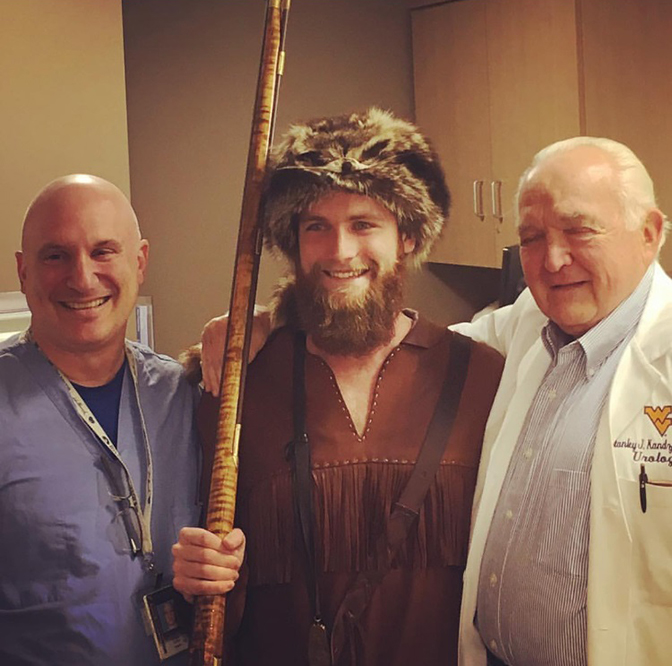Program Curriculum
The goal of the Urology Residency Training Program is to train excellent Urologic surgeons, by providing flexibility to pursue either an academic or private-practice career path. Pursuit of excellence in clinical care, discovery in research, and integrity of character are stressed. The resident will be competent in clinical science, practice-based learning, interpersonal skills and communication, professionalism, and systems-based practices.
In addition, each resident will, by the end of the residency attain sufficient knowledge of etiology and management of Urologic disease in the following domains: andrology, infertility, impotence, sexuality, calculus disease, Neurourology, obstructive diseases, Oncology including laparoscopic and robotic urology, Pediatric Urology, Endourology, ESWL, Female Pelvic Medicine and Reconstructive Surgery, infectious diseases, renovascular diseases, surgery of the adrenal gland, trauma, and urodynamics.
The resident will be able to provide total care to the patient with graded responsibility by level of training, which include initial evaluation, diagnosis, use of information technology, selection of appropriate therapy, performance of high-caliber surgical technique, management of any adverse events, delivery of service aimed at preventive Urologic care, and collaboration with all health-care professionals for patient-focused care.
The PGY-1 year is the preliminary year of Urology and encompasses 6 months of General Surgery in the Department of Surgery General Surgery Residency Program as well as 6 months of Urology. Rotations in General Surgery focus on colon and rectal surgery, plastic/reconstructive surgery, surgical critical care,
transplantation, and trauma. The PGY-2 year of urology focuses on General Urology. Basic Pediatric Urology cases are also introduced. The PGY-3 year of Urology focuses Endourology/Minimally invasive surgery. Advanced Pediatric Urology cases are also taught. The PGY-4 year of Urology (PGY-4) focuses on advanced cases in Endourology/minimally invasive surgery and Female Urology/Neurourology. Introduction to Urologic Oncology and Advanced cases in Pediatric Urology are also provided. In the PGY-5 year, the resident serves as chief resident and focuses on Urologic Oncology with significant exposure to robotic urology and advanced cases in all other disciplines.
For a more complete description of each year's curriculum, please refer to the Urology Resident Manual
